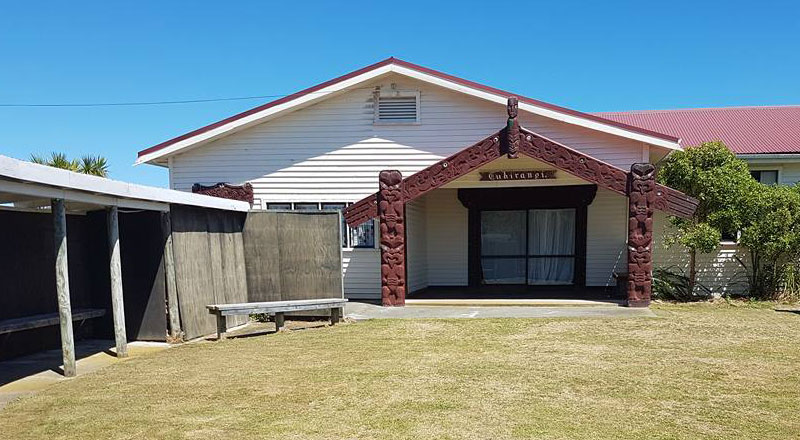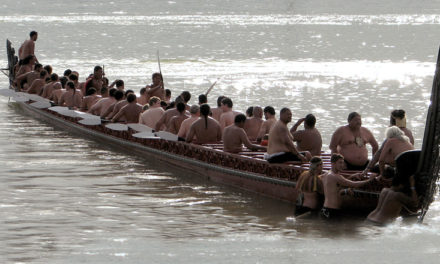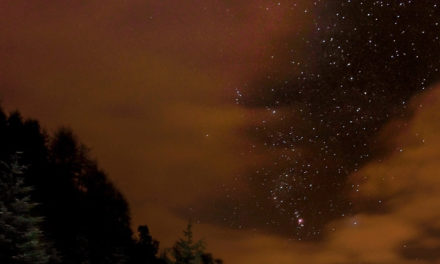Manaaki Missions Motivations
Tena tātou katoa e te iwi mīhana… (Greetings to all the people in mission),
This post was originally published in Issue 35 of NZCMS’s Intermission Magazine and posted online here. I have edited it a little further for the purposes of my blog.
Māori culture is a hospitality culture. We have a whakataukī (proverb), He tangata takahi manuhiri, he marae puehu — If people abuse or disregard their guests, their marae will be dusty. There is a play on words here with reference to the marae. It could refer to the marae ātea, the public forum or open area in front of the wharenui (meeting house – featured above is the marae ātea of my family’s wharenui, “Tuhiranga”, named after the taniwha or mythical sea creature that guided our ancestors across the pacific ocean to our tribal location). The marae ātea is where visitors are met in a pōwhiri (welcoming protocol), but the term marae is more properly understood as a verb to mean being generous or hospitable. Their hospitality will be dusty. In other words, shameful.
Integrated Foundations
In order to understand something of the Māori perspective of Te Tiriti o Waitangi (The Treaty of Waitangi) and the intercultural responsibilities of each party to that covenant, we need to appreciate some of the kaupapa (foundational values) of te ao Māori (the way Māori view the world) and its resulting priorities.
For Māori, cultural values are deeply integrated with each other and inseparable
Culture is a complex and dynamic concept. For Māori, cultural values are deeply integrated with each other and inseparable, making it impossible to discuss one aspect without inferring its relationship with our entire way of understanding the world. Mauri, A vital life force, permeates it all, connecting all things to each other. Christians must not dismiss this view as pagan, animist or pantheist. Those terms are just modern Western constructs. No, Christians should readily attest to the reality of a life force emanating from the Creator to all of creation. This is rooted in the very story of creation itself, a result of the utterance of the Word (John 1:4) and reverberating with Christ, in whom all things hold together (Col 1:17).
To develop healthy intercultural relationships from and within Aotearoa New Zealand it is helpful to understand the genesis of our bicultural foundation. To understand our bicultural foundation we need to comprehend our covenantal obligations under the Tiriti o Waitangi. To comprehend the intention of Te Tiriti we need to appreciate how Māori view hospitality (marae). To appreciate the values of hospitality for Māori we need to grasp the underlying concept of manaaki. Grasping manaaki will also help us better work out our participation in God’s mission in this world since Christ is the ultimate manifestation of manaaki.
Reinforcing Mana
Māori concepts have many shades of meaning depending on the context in which they are used. Manaaki is one such concept-word. The Māori Bible translates as manaaki Hebrew words like berakah and the Greek eulogia (both translated as “blessing” in English). In my doctoral research, manaaki was explained to me by Māori Christian research participants as, “to āki (encourage or lift up) the mana (esteem, respect, honour, animated life force) of another”.
Mana is the evidence in a person of their animated life force and spiritual virtues.
Mana is core to understanding mana|āki and it is grossly underappreciated in our common usage. We could argue that mana is one of a handful of reinforcing rods that run through the foundations of a Māori view of the world. To see mana as merely honour or respect is to treat it very superficially. We do not have sufficient space here to do justice to the complex spiritual roots beneath the surface that emerge as mana. Suffice it to say, it is deeply compatible with a Biblical view of reality being created by God’s Word and breath.
Mana is the evidence in a person of their animated life force and spiritual virtues. Pākehā would call it a person’s psycho-emotional make-up, preferences, strengths, and talents. Mana is a person’s charisma in the spiritual sense—our divine grace. Mana is the manifest evidence of all these things at work through all that a person is and does in relationship with others. For Māori, and no doubt many other tribe-oriented societies, a person’s mana is recognised by their community and ascribed to the person by the community—you cannot claim it for yourself. You can do things that affect the community and lose mana and you can do things for the community and gain mana. The more mana you are recognised for, the higher standing you have in the community. Mana is therefore relational currency, and a highly prized and defended treasure it is at that.
A Platform For Many
And so we come to Te Tiriti. There is no doubt in my mind that our Māori forebears understood and signed Te Tiriti as an act of manaaki. As a relationship-forming protocol. They extended hospitality to the British Crown on a national level, viewing the signing of Te Tiriti in a similar way that a hongi (nose press) seals the relationship at a pōwhiri on a marae. Māori leaders elevated the mana of the British visitors by extending them hospitality, allowing all those represented by the authority of the Crown to come in and treat the land as their home (but without ownership, for that was largely a foreign concept to Māori at the time). The offer of co-residence came with full expectation that the new settlers would do so guided by the ethics of the tangatawhenua (people of the land), just as you would expect to do on a marae. The British clearly did not see things the same way and used their mana against the people of the land, thereby losing mana in the eyes of Māori.
Most of us are well aware of how the relationship went bad. My aim is to emphasize why the relationship was formed in the first place. It was an act of generosity and hospitality, NOT an act of surrender in the face of a greater power. In the creation of the (enduring) covenant we know as Te Tiriti o Waitangi we have an agreement between two peoples: the tangatawhenua and the British Crown. That is why we call the relationship a bi-cultural one, but this is actually inappropriate terminology because the British Crown represents many cultures. Even in 1840, when Te Tiriti was covenanted, the British Empire ‘represented’ the Australian, Canadian, Indian, East and Southern African, and some Middle Eastern, Asian and Pacific Island indigenous peoples. How much our Māori Chiefs understood about the reach of the British Empire we cannot know, but they knew Queen Victoria was the head of a very large, multi-cultural domain. Te Tiriti therefore included all who would come under the auspices and rule of that empire, as permitted by the Queen’s delegated authority here—the Government.
The Government of Aotearoa New Zealand now represents the Crown in extending permission for migrants to come and settle in our land. To an extent, this is the Government’s right under Te Tiriti. Te Tiriti allowed them to govern and hold rule of law over those entering the land on the basis of the hospitality of the Crown. Māori were to retain their own sovereignty and co-reside in the land with a rule of law compatible with the Crown’s. But we all know how that has worked out in reality to date.
A Foundation To Build On
…the power of hospitality as a deeply spiritual discipline
Māori may have had our hospitality abused by the Government and its settlers but that does not dismiss the power of hospitality as a deeply spiritual discipline. Christ had His hospitality abused by Jewish powers and Roman law as He held out an invitation to enter His Kingdom. As the Father sent the Son, so we are sent into the world (John 18:18) to extend Kingdom hospitality to those willing to come in.
Our mission, should we choose to accept it, is to provide the very best manaaki we can to those seeking a place of peace where they can fully be who God has made them to be. This is our intercultural responsibility under Christ’s New Covenant. We must not let Jesus find our marae dusty as we #stayonmission. (Philippians 2:1-11)
Whakapaingia te Atua, to tatou kaiunga ki te ao whanui (Praise to God, who sends us into the world),
Jay






